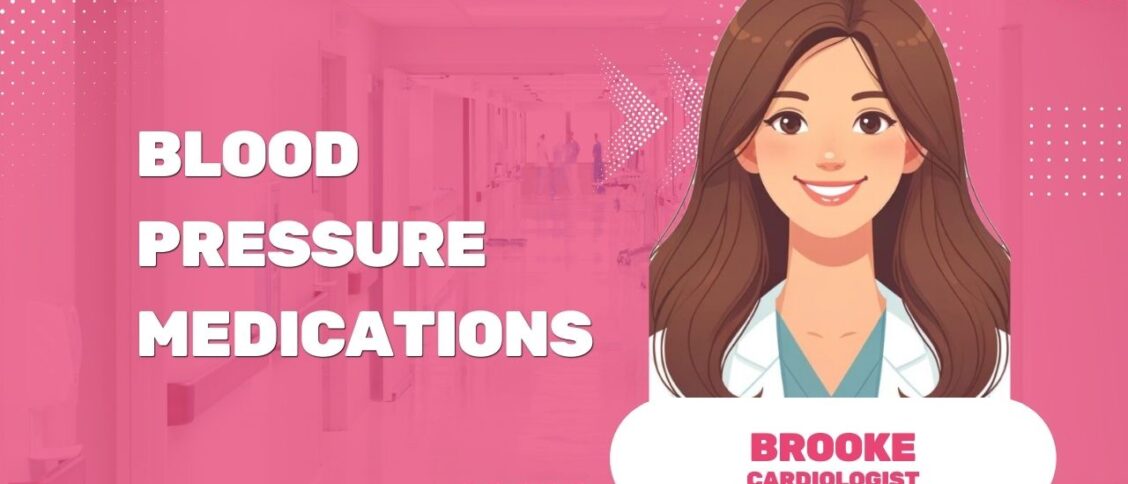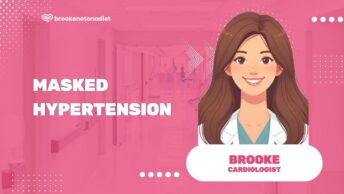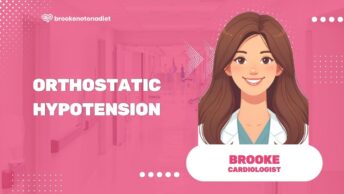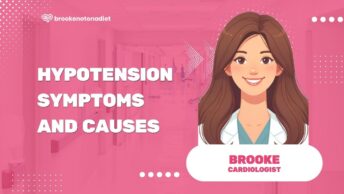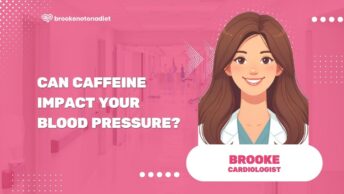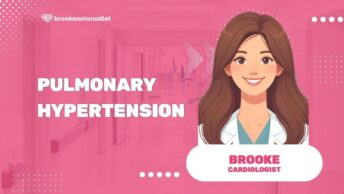In the realm of health, blood pressure medications play a pivotal role. It’s a subject I’ve spent years diving into, deciphering the complexities and breaking them down into digestible insights.
These medications aren’t just pharmaceutical jargon, they’re life-altering tools. They’re the difference between a healthy heart and a life filled with medical complications.
In this article, we’ll delve into the various types of blood pressure medications, their benefits, and potential side effects. We’ll also explore how to manage these medications effectively. So, buckle up for an enlightening journey into the world of blood pressure medications.
What are the types of blood pressure medications?
In our journey to understand blood pressure medications, it’s essential to unpack the various types that are available currently. They’re not just “technical” terms, they’re critical tools to maintaining our health. With an extensive range to choose from, each type of blood pressure medication works in a unique way to help lower your blood pressure.
Angiotensin-Converting Enzyme (ACE) Inhibitors
One of the first lines of defense in blood pressure management is ACE inhibitors. These powerful medications work by blocking the formation of a natural body chemical called angiotensin II. I like to think of these as your control towers. By preventing the formation of angiotensin II, they help your vessels relax and reduce the amount of water your kidneys reabsorb. This leads to lower blood pressure and less work for your heart.
Diuretics
Next up, we’ve got Diuretics, or water pills, as they’re commonly known. Ever wondered why you’re frequently visiting the bathroom when you start on these? It’s because diuretics rid your body of excess sodium (salt) and water. When there’s less fluid flowing through your veins and arteries, your blood pressure goes down. It’s a simple, effective tool for your blood pressure management kit.
Angiotensin II Receptor Blockers (ARBs)
A close cousin of ACE inhibitors, ARBs block the action, not the formation, of angiotensin II. They keep this natural body chemical from tightening your blood vessels, thereby helping them to relax.
Alpha-blockers
Then you have the Alpha-blockers. Their role is a tad more aggressive. They work by reducing nerve impulses to your blood vessels, which allows the blood to pass more easily, causing the blood pressure to lower.
Alpha-beta-blockers
Alpha-beta-blockers, quite like their name, are two-pronged warriors. They reduce nerve impulses the same way alpha-blockers do. Additionally, they slow the heartbeat like beta-blockers. A slower heart rate translates to less blood being pumped through the vessels each minute, which reduces pressure.
Beta-blockers
Speaking of which, we come to Beta-blockers. They are less commonly used these days, but can be a good option if other medicines don’t work. It’s their job to make your heart beat slower and with less force. In turn, your heart pumps less blood through your arteries, reducing blood pressure.
Calcium-Channel Blockers
On to another champion, the Calcium-channel blockers. These guys reduce blood pressure by preventing calcium from entering cells of your heart and arteries. Fewer calcium leads to less strong heart contractions and less narrowed blood vessels, which means lower blood pressure.
Central Agonists
Numbers are starting to increase on the Central agonists. They play a similar role to alpha and alpha-beta blockers. By decreasing the ability of the blood vessels to narrow, they help to lower blood pressure.
Vasodilators
Finally, we’ve got Vasodilators. These tough players work directly on the muscles in the walls of your arteries, preventing them from tightening and your blood vessels from narrowing.
At the heart of it all, maintaining good blood pressure numbers is the lifeblood of good health. Whether it’s through a blood pressure chart or a blood pressure monitor, keeping track of your blood pressure levels and using the right medication to manage it, is crucial.
What are the best meds for high blood pressure?
Juggling between different medications for high blood pressure can be quite overwhelming. You might ask yourself: Which one is the best for me? This is an area that requires complete input from healthcare professionals, but it also doesn’t hurt to have the knowledge at your fingertips.
- ACE (Angiotensin-Converting Enzyme) Inhibitors such as Lisinopril, Ramipril, and Quinapril are often the first line of treatment. They work by reducing the production of angiotensin, a chemical that narrows blood vessels. Fewer chemicals mean more relaxed and open vessels. Hence, less pressure is put on the heart while pumping blood.
- ARBs (Angiotensin II Receptor Blockers) like Losartan, Valsartan, and Candesartan work similarly to ACE inhibitors. Instead of reducing production, they block the effects of angiotensin. Both ACE inhibitors and ARBs are an excellent avenue for lowering blood pressure.
- Beta-blockers, such as Atenolol and Metoprolol, reduce heart rate and the heart’s workload, indirectly contributing to a lower blood pressure. They’re generally added if one drug isn’t enough.
What are the best meds for low blood pressure?
Medications play a crucial role in managing low blood pressure. When lifestyle alterations alone don’t help, your healthcare provider may recommend specific medications. Below, we’ll delve into some of the most effective meds for low blood pressure.
1. Midodrine (Orvaten)
Midodrine is an oral medication that narrows blood vessels, increasing blood pressure. It’s often recommended for chronic orthostatic hypotension, a condition where blood pressure significantly drops when you stand up.
2. Fludrocortisone (Florinef)
This is a medication with potent, long-lasting anti-inflammatory and salt-retaining properties, which can help increase blood pressure.
3. Erythropoietin (Epogen or Procrit)
Erythropoietin stimulates the production of more red blood cells, allowing for better oxygen flow and enhanced blood pressure levels.
As a method of managing your blood pressure, consider using a blood pressure monitor for regular updates. It’s an effective tool that can help keep tabs on how your body responds to medication.
| Name | Use | Mechanism |
|---|---|---|
| Midodrine (Orvaten) | Chronic orthostatic hypotension | Narrows blood vessels |
| Fludrocortisone (Florinef) | Increase blood pressure | Salt-retaining properties |
| Erythropoietin (Epogen or Procrit) | Enhanced blood pressure levels | Stimulates the production of red blood cells |
Please note that all medicines have potential side effects, and not all may be suitable for you. Always consult with a healthcare professional before adjusting or starting any new treatment. They’ll provide a plan tailored to your medical history and lifestyle.
Remember that understanding your blood pressure chart is crucial for your health journey. Knowing the blood pressure ranges can guide you when checking blood pressure regularly. This insight may inform dietary adjustments, changes in physical activity, or perhaps the incorporation of medication to aid in lowering blood pressure.
Can you drink alcohol while on blood pressure medications?
Navigating the web of lifestyle habits while managing blood pressure medication can be tricky. A frequently asked question is whether alcohol and medication can mix. Well, let’s delve right into it.
How Long After Drinking Alcohol Can I Take Blood Pressure Meds?
Contrary to popular belief, you don’t necessarily need to avoid alcohol completely while on blood pressure medication. However, moderating the intake is crucial. Alcohol can cause side effects and reduce the effectiveness of your medication. On top of this, it’s very important to know that alcohol can raise your blood pressure, working against your medication efforts to lower it.
According to the American Heart Association, if you’re drinking, it’s recommended to wait 2 hours per drink before taking your medication. This means after having one glass of wine, you should wait at least 2 hours before taking your next dose.
| Number of Drinks | Waiting Period (hours) |
|---|---|
| 1 | 2 |
| 2 | 4 |
| 3 | 6 |
Please remember these are only guidelines and it’s advisable to consult your healthcare professional or pharmacist to receive personalized advice.
Monitoring Blood Pressure After Alcohol Consumption
One way to keep tabs on the effects of alcohol on your blood pressure medication is to use a blood pressure monitor.
Chances are if you’re on medication, you’ve become quite familiar with one of these devices. These monitors are excellent tools to keep track of your blood pressure ranges. By checking your blood pressure regularly, especially after alcohol consumption, you can observe how it affects your readings.
If you notice consistent elevations after drinking, it might be a sign that your alcohol consumption is hindering your medication’s effectiveness—time to have a chat with your healthcare professional.
Please remember, each body reacts differently to medication and alcohol. Ultimately, you should make the choices that work best for you, keeping your long-term heart health always in mind. You don’t have to navigate this alone, and personal advice from healthcare professionals is just a call away.
Which blood pressure medications should be avoided when you have a kidney disease?
If you have kidney disease, it’s crucial to tread carefully when it comes to blood pressure medication. Certain blood pressure medications may have detrimental effects on an already compromised kidney function. Here’s a quick rundown on the medications that could potentially cause more harm than good.
ACE Inhibitors and ARBs
ACE inhibitors and angiotensin receptor blockers (ARBs) are commonly prescribed to people with high blood pressure. While these medications help in relaxing blood vessels and reducing blood pressure, they may worsen kidney function in some scenarios.
Usually, these medications are avoided if the patient is known to have bilateral renal artery stenosis or is in a condition that might predispose them to this condition.
The following table summarizes a few commonly used ACE inhibitors and ARBs:
| Drug Class | Examples |
|---|---|
| ACE inhibitors | Lisinopril, Ramipril |
| ARBs | Losartan, Telmisartan |
Bear in mind that while these medications are generally safe for most, if you are someone with a compromised kidney function, you must consult with your healthcare professional before starting or continuing these.
Diuretics
Next on the list are diuretics, another class of medication often used to control high blood pressure. These work by helping kidneys to get rid of excess sodium and water, thereby lowering blood pressure. However, in a person with kidney disease, diuretics may actually impair kidney function further.
Commonly prescribed diuretics include:
- Furosemide
- Hydrochlorothiazide
- Indapamide
While using a blood pressure monitor can help you keep an eye on your blood pressure ranges, it is the consulting with your healthcare professional that ensures you’re on the right track.
NSAIDs
Nonsteroidal Anti-Inflammatory Drugs (NSAIDs) aren’t directly related to blood pressure treatment, but they are frequently used as over-the-counter painkillers. What most people don’t realize is that the regular use of NSAIDs can interfere with blood pressure medications and may cause an increase in blood pressure or even acute kidney failure in some cases.
Some widely used NSAIDs include:
- Ibuprofen
- Naproxen
- Aspirin
Which blood pressure medications should be avoided when you have a liver disease?
If you’re grappling with liver disease, it’s crucial that you pay close attention to the types of blood pressure medication you’re consuming. Some of these medications might have adverse effects on your liver function, thereby further complicating your health status. The importance of knowing this juxtaposition can hardly be overstated.
Medications to Exercise Caution
There are specific classes of drugs within blood pressure medications that should be given careful thought:
- ACE inhibitors
- Angiotensin II receptor blockers (ARBs)
- Beta-blockers
- Thiazide diuretics
- Calcium channel blockers
It’s not a one-size-fits-all directive as each of these categories will have varying degrees of impact on your liver health. Let me explain this in more detail and highlight some common medications in each category.
| Medications | Class | Known Interactions with Liver |
|---|---|---|
| Lisinopril | ACE Inhibitor | Can cause liver damage in rare instances |
| Losartan | ARBs | Rare but severe liver injury reported |
| Propranolol | Beta-Blockers | Can potentially impair liver function |
| Hydrochlorothiazide | Thiazide diuretics | Rare cases of liver complications |
| Amlodipine | Calcium Channel Blockers | Minimal direct impact, but caution needed for overall health |
This isn’t an exclusive list and doesn’t mean you should outright avoid these medications if you have liver disease. It emphasizes the need to involve healthcare professionals. They are the best judge as they can fully consider your medical history, current health conditions, and the specific blood pressure ranges you’re aiming to achieve. Personalized advice in this matter is indispensable.
Keeping track of your blood pressure is also a critical part of managing your health. I highly recommend utilizing a blood pressure monitor. I can’t count the number of times I’ve emphasized relying on one, to assess the effectiveness of your medication as well as to monitor for potential side effects.
Moreover, constant reassessing can offer a better understanding of your body’s response to specific medication classes while your blood pressure ranges shift. This understanding is fundamental in guiding your health journey.
Can dietary supplements interfere with blood pressure medication?
Diving into the world of dietary supplements, you may come across several claims about their benefits. It’s imperative to keep in mind, however, that these supplements also have their pitfalls. Particularly, they can potentially interfere with your blood pressure medication.
Key Interactions to Consider
Certain dietary supplements tend to have varying effects when taken alongside blood pressure medicines.
- St. John’s Wort: This herb can be a prime culprit when it comes to interacting with blood pressure drugs, specifically causing a decrease in their effectiveness.
- Ginseng: Though touted as an adaptogen, ginseng can elevate blood pressure levels, which could weaken the impact of your medication.
- Garlic Extracts: These supplements may also intensify blood pressure reduction beyond what’s intended, leading to potential health risks.
- Palmleaf Raspberry Fruit: It could possibly reduce the effectiveness of beta-blockers and calcium channel blockers, causing an increase in blood pressure readings.
| Supplement | Interaction with Blood Pressure Medication |
|---|---|
| St. John’s Wort | Reduction in medicine effectiveness |
| Ginseng | Elevation in blood pressure |
| Garlic Extracts | Extreme blood pressure reduction |
| Palmleaf Raspberry Fruit | Increased blood pressure readings |
Crucial Tips for Monitor Usage
It’s beneficial to own and regularly use a blood pressure monitor at home. This gadget allows you to track how these supplements affect the efficiency of your medication, alongside providing a visual representation of your blood pressure ranges.
- First, make sure your monitor is calibrated correctly.
- It’s recommended to measure your pressure twice daily, ideally in the morning before taking medication, and in the evening.
- Always wait at least 30 minutes after exercising or consuming supplements before checking your blood pressure.
- Correctly positioning your arm is crucial – it should be level with your heart.
Through your monitor, you’re able to verify if dietary supplements are causing any changes – in both lowering blood pressure, as well as the undesirable increase in pressure. If this is the case, consulting with your healthcare professional is paramount.
What lifestyle changes can make blood pressure medication more beneficial?
Now that we’ve looked at blood pressure medication interactions, let’s move on to something equally important – embracing lifestyle changes that can enhance the effectiveness of your blood pressure medication.
Watching what you eat cannot be emphasized enough. A diet that is low in sodium and saturated fats can go a long way in managing hypertension. If you’re uncertain about how to start, the DASH diet (Dietary Approaches to Stop Hypertension) might be a great starting point.
Exercise is another crucial aspect. Regular physical activity can lower your blood pressure and help your medication work more effectively. Creating a routine that suits your life can make all the difference. This might mean scheduling regular walks, hitting the gym, or joining a local sports club.
| Lifestyle Change | Impact on Blood Pressure |
|---|---|
| Healthy Diet | Lowering |
| Regular Exercise | Lowering |
Next is weight management. If you’re overweight, shedding even a few pounds can significantly lower your blood pressure. Every pound that you lose can improve your health!
A healthy sleep habit is an underrated but essential aspect of a heart-healthy lifestyle. Sleep disorders, like sleep apnea, often go hand-in-hand with high blood pressure, and treating them can improve blood pressure levels and overall health.
Not to forget, stress management can’t be left out of this equation either. We all have stress in our lives, but it’s how we handle it that impacts our health. Techniques like deep breathing, yoga, or meditation can help you stay calm and in control.
Keeping a blood pressure monitor at hand can be incredibly beneficial as well. By checking your blood pressure regularly, you can gain insights into how your lifestyle changes and medication are affecting your numbers.
Finally, despite these tips, it’s important to remember that everyone is different, and what works for one person may not work for another.
So how do you know what’s right for you?
Well, you’ve got to listen to your body. Pay attention to your blood pressure ranges post your lifestyle changes. Also, don’t forget to consult your healthcare professional for personalized advice regarding your diet, exercise routine, and medication. They may also provide a blood pressure chart for better understanding and tracking.
What should I do if my blood pressure medication doesn’t work?
In the journey of managing blood pressure, it’s essential to understand that medications play a key role. However, what do you do when your blood pressure medication isn’t yielding the desired results? Let’s delve into that.
When Should You Stop Taking Blood Pressure Medication?
It’s crucial to know that you should never stop taking your prescribed medication on your own. Unintended consequences such as a sudden blood pressure spike could occur, putting your health at risk.
As a rule of thumb, if you feel that your current medication isn’t working effectively, consult your healthcare provider. They may need to adjust your dose or try a different type of medication to help manage your blood pressure. Remember, check-ups are an absolute necessity for monitoring your body’s reactions to certain medications and keeping everything on track.
Checking Your Blood Pressure Regularly
A key aspect that aids diagnosing the effectiveness of your blood pressure medication is regular monitoring of your blood pressure at home. This would involve using a blood pressure monitor. This device allows you two things:
- Helps to track the impact of medication on your body
- Gives a clear picture of your blood pressure ranges
This data will allow you or your healthcare provider to make informed decisions regarding the need for medication changes.
Consider Lifestyle Modifications
Lifestyle changes, if implemented properly, can be as effective as medication in lowering your blood pressure. Here are some suggested modifications:
- Adhere to a healthy diet
- Indulge in regular exercise
- Practice good weight management
- Ensure healthy sleep habits
- Employ stress management techniques
These lifestyle changes working in conjunction with medication can prove to be a formidable weapon against high blood pressure.
It’s worth acknowledging that maintaining a healthy lifestyle and using medication as prescribed by your healthcare provider are both critical parts of managing high blood pressure. Medications do their part, but the effectiveness can be amplified by our daily habits. It’s a consistent dance between the two, ensuring we maintain our blood pressure within the desired range.
What if I took my blood pressure pills twice?
Sometimes you may find yourself wondering, “Did I take my blood pressure pill? Better safe than sorry,” and swallow another. However, taking your blood pressure medication twice inadvertently may not always be harmless. Understanding the consequences is key here.
Knowing your blood pressure ranges is vital to understand before we dive deeper into the situation. Let’s establish what these ranges are.
| Blood Pressure Categories | Systolic mm Hg (upper #) | Diastolic mm Hg (lower #) |
|---|---|---|
| Normal | less than 120 | less than 80 |
| Elevated | 120-129 | less than 80 |
| High Blood Pressure (Hypertension) Stage 1 | 130-139 | 80-89 |
| High Blood Pressure (Hypertension) Stage 2 | 140 or higher | 90 or higher |
| Hypertension Crisis (seek emergency care) | higher than 180 | higher than 120 |
When you overdose yourself by taking your pills twice by mistake, this might lead to your blood pressure dropping too low. Lowered blood pressure or hypotension, although not as prevalent as high blood pressure, can pose health risks too.
Symptoms to watch out for include:
- Dizziness or lightheadedness
- Fainting
- Blurred vision
- Nausea
- Fatigue
Unlike checking your blood pressure, which can be done comfortably at your home with a blood pressure monitor, determining an overdose of blood pressure medication often requires professional medical guidance.
If you find yourself feeling unwell and suspect that double dosing on your medication could be the cause, seek medical help immediately. It’s also crucial to remember that lowering blood pressure isn’t just about medication. As much as medicine plays a critical role, making lifestyle changes are quite often just as if not more significant in the long-term management.
If you constantly find it challenging to remember if you’ve taken your medication or not, it’s time to put some strategies in place:
- Use a pill organizer
- Set an alarm as a reminder
- Use a medication tracker app
How often should you monitor blood pressure while on medication?
When you’re on blood pressure medication, it’s important not just to pop the pills but also to regularly monitor your blood pressure. But how often is ‘regularly’? Well, it varies based on individual needs and your healthcare provider’s advice. However, a general rule of thumb could be to check it a few times weekly. This routine ensures that your medications are performing their job adequately and helps you avoid possible complications. Here, we’ll delve into the topic more extensively and discuss a few accurate blood pressure monitors to use at home.
What Are the Best and Most Accurate Blood Pressure Monitors to Use at Home?
Choosing the right device to monitor your blood pressure at home is critical. The market is filled with numerous brands and models; it’s easy to get overwhelmed. Listed below are few blood pressure monitors that have been acknowledged for their accuracy and user-friendliness:
- Omron Platinum Blood Pressure Monitor
- Greater Goods Blood Pressure Monitor Cuff Kit
- PARAMED Automatic Wrist Blood Pressure Monitor
- Care Touch Fully Automatic Wrist Blood Pressure Cuff Monitor
Here’s a quick snapshot of these devices:
| Blood Pressure Monitor | Key Features |
|---|---|
| Omron Platinum | TruRead technology, unlimited memory and users, BP indicator LEDs |
| Greater Goods | Irregular heartbeat detector, two-user memory, adjustable cuff |
| PARAMED Automatic | Fast reading, 90 reading memory, adjustable cuff |
| Care Touch Wrist Monitor | Fast results, irregular heartbeat indicator, 60 reading memory |
When you’re lowering blood pressure with medication, you must ensure you’re checking blood pressure correctly. This entails making certain that you’re calm and relaxed before checking, your arm is at heart level, and the monitor cuff is snug but not tight.
Remember, while home monitors offer convenience, it’s essential not to use them as a substitute for regular check-ups with your healthcare provider. Monitoring your blood pressure ranges with your healthcare provider and at home will allow you to get a better understanding of your condition and the effectiveness of your medications. All these trackers can be found online and most of them are ready to be shipped right to your doorstep.
How to lower blood pressure instantly?
Taking control of your health and understanding how to instantly lower blood pressure can be a lifesaver. Know that these methods are not to replace medications but to act as additional support systems.
Why You Should Treat High Blood Pressure?
If you ever found yourself staring at a blood pressure chart, you might’ve wondered about the significance of staying within the given blood pressure ranges. High blood pressure, also known as hypertension, is a prevalent health condition that should not be taken lightly.
It’s known as the ‘silent killer’ due to its sneaky capacity to cause damage without significant early symptoms. Comprehensive care and adequate measures are crucial to avoid long-term complications. Here’s why:
- Increased risk of heart disease and stroke: Hypertension increases the load on your heart, potentially precipitating life-threatening conditions such as heart disease and stroke.
- Kidney damage: Elevated blood pressure can lead to malfunctioning kidneys. These organs work incredibly hard to cleanse our bodies, and high blood pressure can damage their filtering system.
- Vision loss: Hypertension can strain the vessels in the eyes, leading to vision impairment or even loss.
- Sexual dysfunction: Often overlooked, high blood pressure can lead to sexual health issues in both men and women by affecting blood flow.
| Risk Factor | Damage it Can Cause |
|---|---|
| Heart disease | Significant risk |
| Kidney damage | High probability |
| Vision loss | Potential risk |
| Sexual dysfunction | Possible issues |
Hopefully, with these reasons, you can understand why it’s essential to maintain your readings within the desired blood pressure ranges.
Quick Steps to Lowering Blood Pressure
Before operating your home blood pressure monitor, it’s important to know some effective ways you can instantly lower your blood pressure:
- Relax and deep breathe: Slow-paced deep breathing can help reduce your blood pressure. Try it before you begin checking your blood pressure.
- Reduce salt intake: Excessive salt in your diet can increase your blood pressure. Aim for less than 1500 mg per day.
- Limit your alcohol consumption: While alcohol can have potential heart benefits, too much can raise your blood pressure drastically.
- Aim for a healthy weight: If you’re overweight, dropping even a little weight can significantly lower your blood pressure.
Final words
It’s clear that maintaining healthy blood pressure is crucial, and medication can play a key role. But it’s not just about popping a pill; it’s about regular monitoring and lifestyle changes too. Having a reliable home monitor can help you keep track, but it’s not a substitute for professional healthcare advice. Remember, high blood pressure can lead to serious complications if left untreated. So, take charge, reduce your salt and alcohol intake, aim for a healthy weight, and practice relaxation techniques. It’s your health, your life. Make it count.

